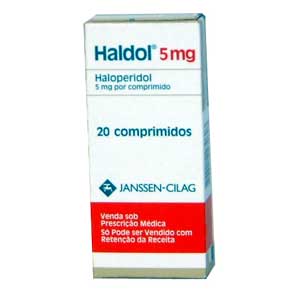The Best Guide to Schizophrenia Medications That Will Help You Choose Wisely
Schizophrenia Medication Consumer Guide

Understanding Schizophrenia
Schizophrenia is a brain disorder that causes those who have it to have an altered perception of what is real and not real. It affects how the person sees the world, how he fits in, how he behaves, and how he thinks. Someone with schizophrenia may see or hear things that aren’t real. A person with the disorder may speak in an unintelligible way, may believe others are trying to hurt him and may believe he is always being watched.
Understandably, people with schizophrenia have a very hard time navigating the real world and have difficulty functioning on a day-to-day basis. As a result, many people with the disorder sometimes act out and/or withdraw into themselves and away from the world and the people who love them.
While there is no cure for schizophrenia, the chronic disorder can be managed with the help of therapy, home support and medication. In fact, many people with this disorder can live fulfilling, independent lives, so long as they receive the help they need.
Causes and Symptoms of Schizophrenia
While it’s not known what causes the disorder, researchers have come to believe schizophrenia develops via a combination of environmental and genetic factors.
Issues with the brain’s naturally occurring chemicals dopamine and glutamate may contribute to the disorder. In addition, neuroimaging studies have shown that people who develop schizophrenia have differences in their central nervous system and brain structure, leading researchers to believe the disorder is a brain disease.
People who have a parent or sibling (a first-degree relative) with the disorder have a 10 percent chance of developing it (the general population has just a one percent chance). Still, having a first-degree relative with the disorder is only an influence, not a determining cause: about 60 percent of those diagnosed with schizophrenia have no history of it in their family.
There are a few different symptoms of schizophrenia, including hallucinations, delusions and disordered speech and behaviors. Symptoms can vary tremendously between individuals as well as in their severity and patterns. Symptoms also can change over time.
Treating Schizophrenia with Medication
Treating schizophrenia requires that those with the disorder receive medications and psychosocial therapy for the rest of their lives, with medication being the foundation of their treatment.
Drugs commonly prescribed for the disorder are antipsychotic medications as they are believed to control the symptoms that affect dopamine and serotonin (brain neurotransmitters).
Schizophrenia medications can have rare but serious side effects, so it’s critical that anyone being treated with the disorder be in close contact with his or her physician and take all medications exactly as prescribed.
Below are some of the most-prescribed drugs used to treat schizophrenia.
Older (Typical) Antipsychotic Medications
Sometimes called “typical” antipsychotic drugs, these medications have been prescribed to treat schizophrenia since the mid-1950s.They include:
- Haloperidol (Haldol)
- Chlorpromazine (Thorazine)
- Fluphenazine-Hcl (Proloxin)
- Perphenazine (Etrafon;no-longer-available-in-the-U.S.)

Common Side Effects of Typical Schizophrenia Medications
Possible side effects of the older (typical) schizophrenia medications could include:
- Dizziness when changing positions
- Blurred vision
- Drowsiness
- Rapid heartbeat
- Sun sensitivity
- Menstruation problems
- Skin rash
Most of these side effects decline and even go away after a few days. Anyone taking any type of anti-psychotic medication should not drive until his/her body has adjusted to the new drug.
Newer (Atypical) Antipsychotic Medications
Medications developed since the 1990s are known as “atypical” or “second-generation” antipsychotics.
Possibly one of the most effective of these newer schizophrenia medications is clozapine (Clozaril). It helps treat schizophrenics’ hallucinations, psychotic episodes, etc. It can, however, cause agranulocystosis, a serious condition that removes white blood cells – those that help a person fight infection – from the body. Patients taking clozapine, therefore, need to have their white blood cells counted every couple of weeks. As inconvenient as having a white blood cell count frequently can be, clozapine can be a true alternative for those schizophrenic patients who don’t respond to other antipsychotic medications.
Other effective second-generation antipsychotic medications (without the serious potential side effect that may present if using clozapine) include:
- quetiapine (seroquel)
- Risperidone (Risperdal)
- Olanzapine (Zyprexa)
- Lurasidone( Latuda )
- Paliperidone (Invega)
- Aripiprazole (Abilify)
- Asenaphine( Saphris )
- Iloperidone(Fanapt)
- Geodon (Ziprasidone)
 Side Effects of Atypical Schizophrenia Medications
Side Effects of Atypical Schizophrenia Medications
Atypical schizophrenia medications could cause major weight gain and even change an individual’s metabolism. These drugs also could increase the patient’s chance of becoming diabetic or getting high cholesterol.
Patients taking these atypical schizophrenia drugs should have their lipid and glucose levels as well as their weight monitored closely by their physician.
Additional side effects could include restlessness, tremors, rigidity, and persistent muscle spasms.
Schizophrenia generally is diagnosed by a psychiatrist and not diagnosed by a family physician (although any physician can prescribe any medication). The patient and psychiatrist together will decide on a medication and therapeutic counseling course of treatment.
An improvement in symptoms can take several weeks before becoming noticeable and the patient’s psychiatrist may try different dosages and/or medications over a period of weeks or months in order to achieve desired results.
People diagnosed with schizophrenia also may be prescribed anti-anxiety medications or anti-depressants.[/fusion_text][/one_full]
Join Our Free Newsletter
Get a weekly dose of money-saving tips on your medications, drug side effects alerts, drug interaction warnings, free prescription coupons, late-breaking safety information and much, much more!